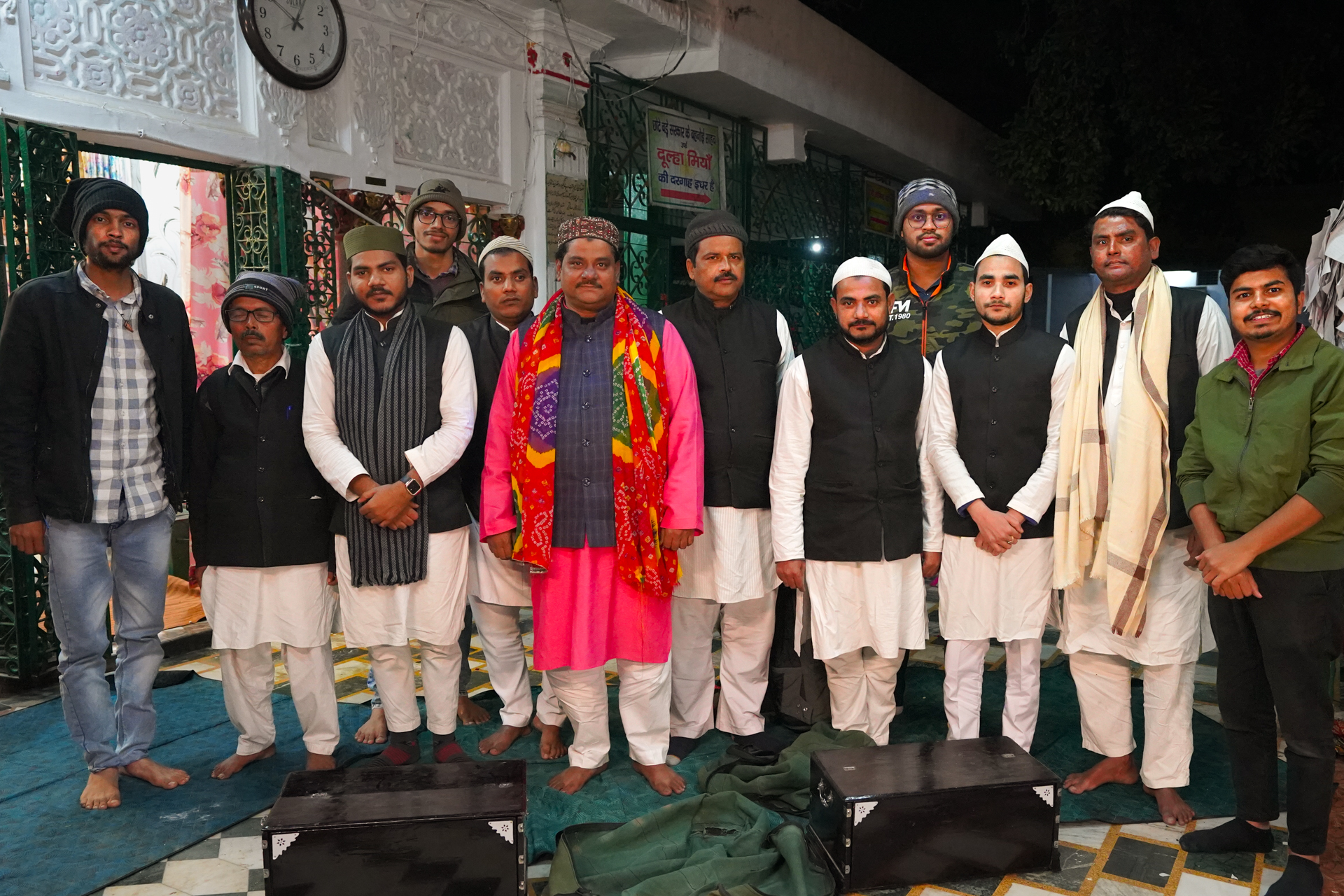
The quest to keep the religious spirit alive in Qawwali
Coming from the historic town of Budaun in Uttar Pradesh, Danish Husain Badayuni is striving to preserve Qawwali in its original devotional form.
Located in the heart of the Rohailkhand region of Uttar Pradesh, Budaun is a significant historic town that has contributed significantly to the arts, religion and culture of Northern India. The town once served as the capital of Iltutmish, where his daughter Razia Sultana was born, the first female monarch of the Delhi Sultanate. Famous Bollywood lyricist Shakeel Badayuni is from there, as is the Marxist writer Ismat Chugtai. Joining this list of talented, notable people from Budaun is the Qawwali artist Danish Husain Badayuni, who also comes from a family of well-known classical musicians.
Danish Husain was touted to be a Classical singer in his childhood, much like his grandfather Ustad Nissar Husain Khan of the Rampur-Sahswan gharana, who was conferred with the Padma Bhushan by the government of India in 1971. His cousin, Ustad Rashid Khan, is also a Classical singer of the same gharana and was a disciple of his grandfather. Still, Danish Husain realised early on that Qawwali was what he was more interested in. His elder brother, who is now deceased, was also a Qawwali artist, and Danish Husain would accompany him in his performances. He credits his brother with having taught him the art of Qawwali.
Qawwali is a Sufi-devotional singing which originated in the Indian subcontinent, owing to the country’s unique cultural and religious milieu in the medieval period during the Islamic conquests. The Islamic rulers who settled in the country following the conquests in the 12th and 13th also brought the new religion of Islam along with them. This attracted several prominent Sufi saints from the heart of the Islamic world in Iraq and Persia towards India, where they sought to teach and propagate the religion. Khwaja Moinuddin Chishti is perhaps the most well-known among these Sufi saints, whose grave in Ajmer is a famous pilgrimage site among people of all religions. He belonged to Herat in present-day Afghanistan and established the Chishtiyya order of Sufism in India, the largest and most well-known Sufi order in the subcontinent.
The Chishtiyya Sufi order had prominent disciples through the centuries, including Khwaja Nizamuddin Auliya whose grave lies in Delhi. He was born in Budaun as well and he was the teacher of Amir Khusrow, an important name in Hindustani Classical music. Amir Khusrow is traditionally credited with synthesising Persian, Arabic, Turkish and Indian traditions to give birth to Qawwali. Qawwali derives its name from the word Qawl, an Arabic word which means the utterance of the Prophet. Qawwaali means repetitions of Qawl. The genre originated to convey the Islamic teachings and the Prophet’s message to the indigenous people of the subcontinent. It was deemed a more suitable way to achieve that given the country’s diverse and already rich religious and cultural landscape.
Although initially, Qawwali only involved singing, musical instruments were incorporated later. Harmonium, Dholak and Tabla are the most common instruments used to perform Qawwali today. The songs are also unique for their rhythmic clapping by the chorus artists who keep the tempo of the songs going. The clapping and repetition of the lines are thought to guide the listeners to a trance-like meditative state and help them feel the nature of God and Reality.
There is much debate within Islam about the permissibility of music and musical instruments for religious purposes, but Qawwali continues to thrive in India, particularly in Uttar Pradesh and Delhi. The songs are usually based on verses composed by Sufi saints and are sung in Sufi shrines, known as dargahs, and Sufi places of worship, known as khanqahs. In the mid-20th century, Qawwali emerged out of this religious sphere and entered mainstream music thanks to the work of Pakistani Qawwali artists like Nusrat Fateh Ali Khan, Aziz Mian and Sabri brothers. They helped popularise Qawwali beyond the Muslim community and gave it a more secular, popular flavour, making it a staple in Bollywood film music.
Danish Husain has earned a lot of fame and reputation, singing the more popular Qawwali. Still, he considers this kind of Qawwali inferior to the religious type. He believes this latter kind is a form of worship and a way to reach and experience the love of God. He prefers to sing the Qawwali in its original form and often performs at the many dargahs in his native town of Budaun. He has even performed in many places across India and abroad for the Indian diaspora in Europe and the Middle East. He laments that younger generations are now less interested in the devotional Qawwali, and everyone is more inclined towards fusion and pop Qawwali.
He is very religious and deeply attached to Budaun, where he lives with his family and manages his group. He credits all his success to the blessings of Nizamuddin Auliya, the well-known Sufi saint born in Budaun. The rest of his group also come from families who have traditionally performed Qawwali for generations. For instance, the Tabla player, Tarik Husain, is the disciple of Gulam Sutan Niyaz Khan, a well-known Tabla player of the Rampur-Sahswan gharana. Many of Danish Husain’s brothers, cousins and nephews also perform in the group, like Aman Husain, who joins as a chorus singer and Afrin Ali, who plays the Dholak.
Qawwali, on the whole, remains a very popular genre that finds its appeal beyond the Muslim community in India. It is performed at the weddings and family events of other North Indian communities, like the Sikhs. Though Nusrat Fateh’s Qawwali is the better-known style of Qawwali and the kind that is often requested in events, Danish Hussain strives to preserve the traditional, devotional Qawwali. He loves to sing in dargahs and khanqahs and, on religious occasions, associated with the Sufi saints.
